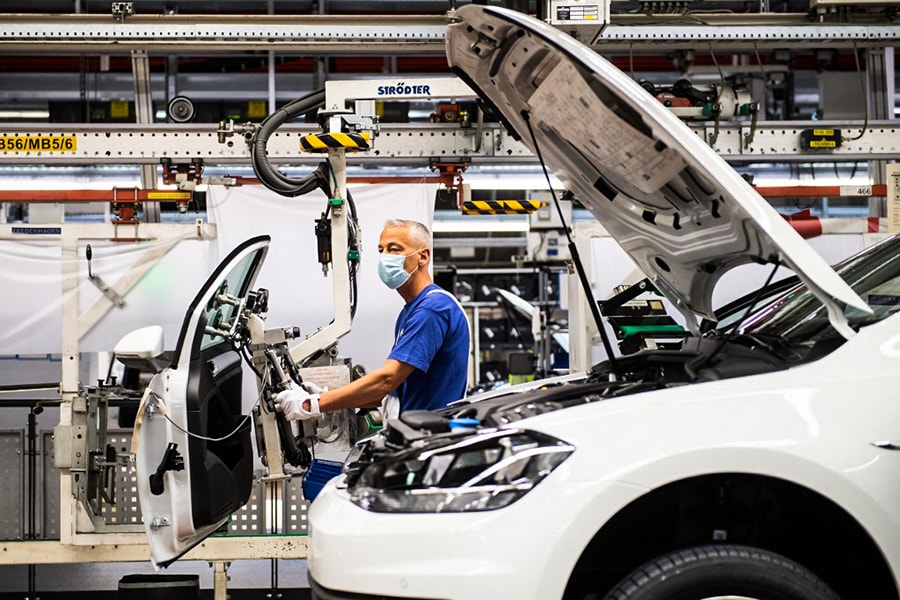
How Volkswagen's sins fueled its redemption
Not long ago Volkswagen was a global pariah after pleading guilty to the biggest emissions fraud in automotive history. Now it is the toast of the stock market, with its shares worth twice as much as they were a year ago

An employee of German car maker Volkswagen (VW) works on the assembly line of the company's plant in Wolfsburg, northern Germany. (Photo by Swen Pfˆrtner / POOL / AFP)
Not long ago Volkswagen was a global pariah after pleading guilty to the biggest emissions fraud in automotive history. Now it is the toast of the stock market, with its shares worth twice as much as they were a year ago.
What happened?
Ironically, Volkswagen’s misdeeds helped pave the way for its reversal of fortune.
In October 2015, a month after the company confessed to rigging diesel cars to conceal illegally high emissions, shellshocked company executives gathered in the brick-clad high-rise executive office building topped with a giant VW logo that looms over the carmaker’s main factory in Wolfsburg, Germany.
Herbert Diess, who was then the head of the unit that makes Volkswagen-brand cars and was later promoted to chief executive of the parent company, presided over the meeting. After hours of discussion, he and the other executives decided to shake Volkswagen’s reputation as a cynical polluter by developing cars with no tailpipe emissions at all.
©2019 New York Times News Service







